Living with ME/CFS.
Photography & text by Andrew Gifford.

I have lost my health, fitness, social life, business, income, independence, sense of agency and my understanding of my future. ME/CFS - a post viral illness, like Long Covid - has taken it all.
I've been housebound for around six years now. My partner of nine years has never known me as my once active and healthy self. I rarely see friends or family. I can't tolerate the heat of summer. I've never been for a walk with our new dog. I've no idea if I'll ever work again. I'm 47 and already my life seems somewhat over.
I don't walk further than - on a very good day - slowly getting from the car park to vote, or putting the bins out. I can manage about one hour on the laptop. Taking a shower means an hours' rest afterwards. If I do much more than this I suffer a neuro-immune-metabolic energy crash which can last days, where I hardly leave the sofa.
My disease progression is currently at 'moderate' level, not the best description of its impact. My quality of life is comparable to stage three or four cancer. Not that it's a competition.
People with very severe ME may be bed bound for years or decades, laying in darkened rooms where they cannot handle the presence of another human, let alone their voice or touch, as the energy crashes may be much more extreme.
My decline in health progressed over three decades, depending on how we define the start. I likely developed ME from Glandular Fever during school years. The virus wreaked havoc and my body hasn't returned to normal. I was always getting run down no matter what I did. In spite of this unrelenting fatigue, I ploughed on, not understanding what was happening while also trying to lead a normal life. It has been a phenomenally difficult path.
I visited various GPs over 20 years in different health authorities and the outcome was always the same; "your test results came back normal", "we all get tired" and "have you tried cutting out wheat and dairy?". Of course, if the tests aren't measuring the right things, the result will always be the same; inadequate. There's not yet a biomarker or definitive test, so ME is a diagnosis by exclusion, usually taking two or more years.
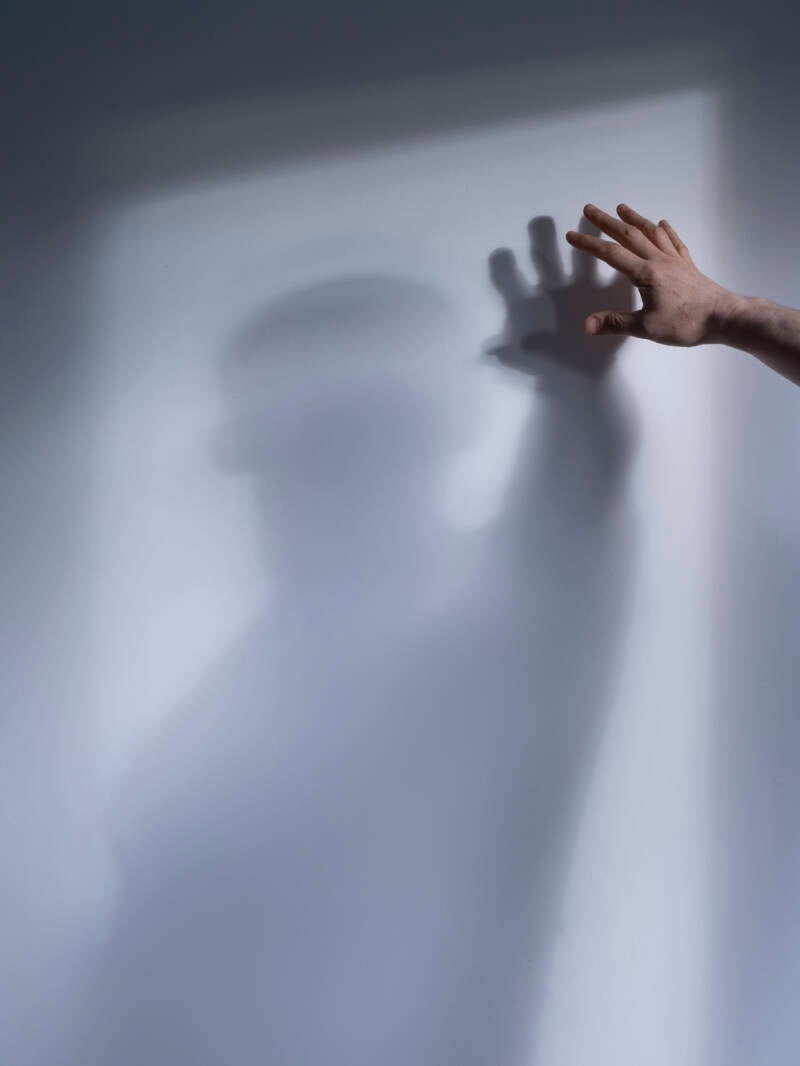

ME/CFS - its full title - is a biological disease. The initials are from Myalgic Encephalomyelitis aka brain inflammation and Chronic Fatigue Syndrome, but this seems slightly derogatory, like calling Alzheimer's "chronic forgetfulness syndrome". ME impacts multiple systems at a cellular level; neurological, metabolic and immune being the main three.
The list of symptoms is as long as your arm. I rarely feel tired. I always feel poisoned, drained, inflamed, in pain, irritable, muddled, weak, forgetful, sweaty and much more besides. It's also thought to impact parts of the brain that influence mood, tolerance, pain and more - compounding the suffering. Ironically, sleep is impacted too; without sleeping tablets I'd be lucky to get three or four hours per night.
400,000 people have ME in the UK. That's twice the total attendees, performers and supply chain of Glastonbury festival. Plus now two million people with Long Covid (half of whom meet the diagnostic criteria for ME). About 70% are female, compounding economic injustices.
It's thought that Florence Nightingale suffered from ME and our NHS isn't offering much better in terms of clinical support today. Successive UK governments have woefully under-funded ME research, in comparison with other diseases of a similar impact.
The UK government has recently published its ME Delivery Plan. It's underwhelming. No serious funding, no front-line clinical changes, no centre of expertise, no mandatory GP training, no off-label drugs, no dedicated beds or care guidelines for severe patients etc. But, it is a nod towards our needs and we welcome that, at least.


Almost two thirds of my meagre monthly welfare amount goes on the drug, supplements and nutrition required to stabilise my condition and achieve a minimal quality of life. I'm lucky to have a supportive and understanding partner for my broader living costs. I believe the DWP should immediately double PIP for people with serious diseases that the NHS isn't currently attempting to treat, so that we can support and treat ourselves.
Patients with severe ME are currently at risk of being harmed further by an NHS reluctant to provide the specialist care needed when in hospital at an advanced stage of disease progression. For example, people are at risk of dying from starvation because hospital staff are reluctant to listen to the patient and fit a feeding tube once normal digestion has deteriorated. In 2025 this is an appalling ongoing failure in health care.
Here in the UK we also have prominent bad actors - advising at the very highest levels of public health policy - seeking to psychologise this disease with flawed studies attempting to suggest this is "all in your mind" and that you can "exercise yourself better". Harmful policies were then implemented which caused many people to decline in health. The truth is coming out and we will obtain justice.
We've recently had a long awaited breakthrough where DecodeME, a large genetic study, has identified eight genes related to ME. This gives researchers something to focus on and may hopefully help attract new funding. But, even if a 'cure' was found today, it's still a long road ahead, taking five-10 years to become clinically available. Current research is almost exclusively funded by private donations and from the incredibly resourceful ME community.
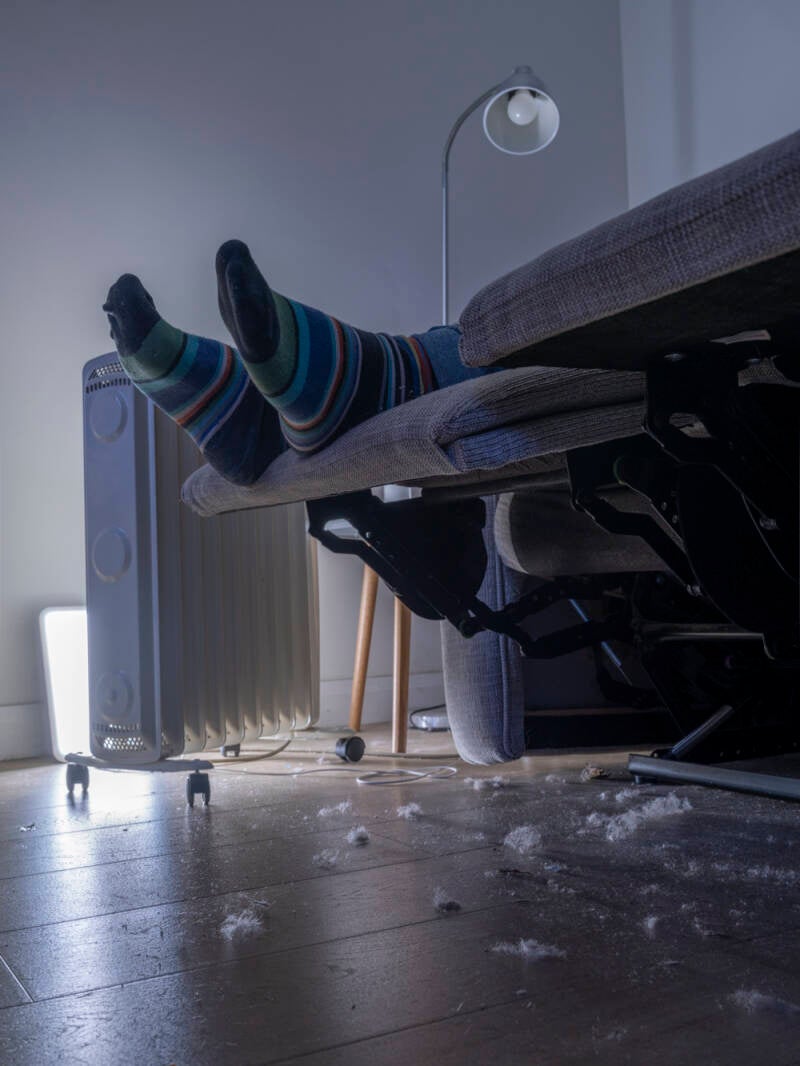
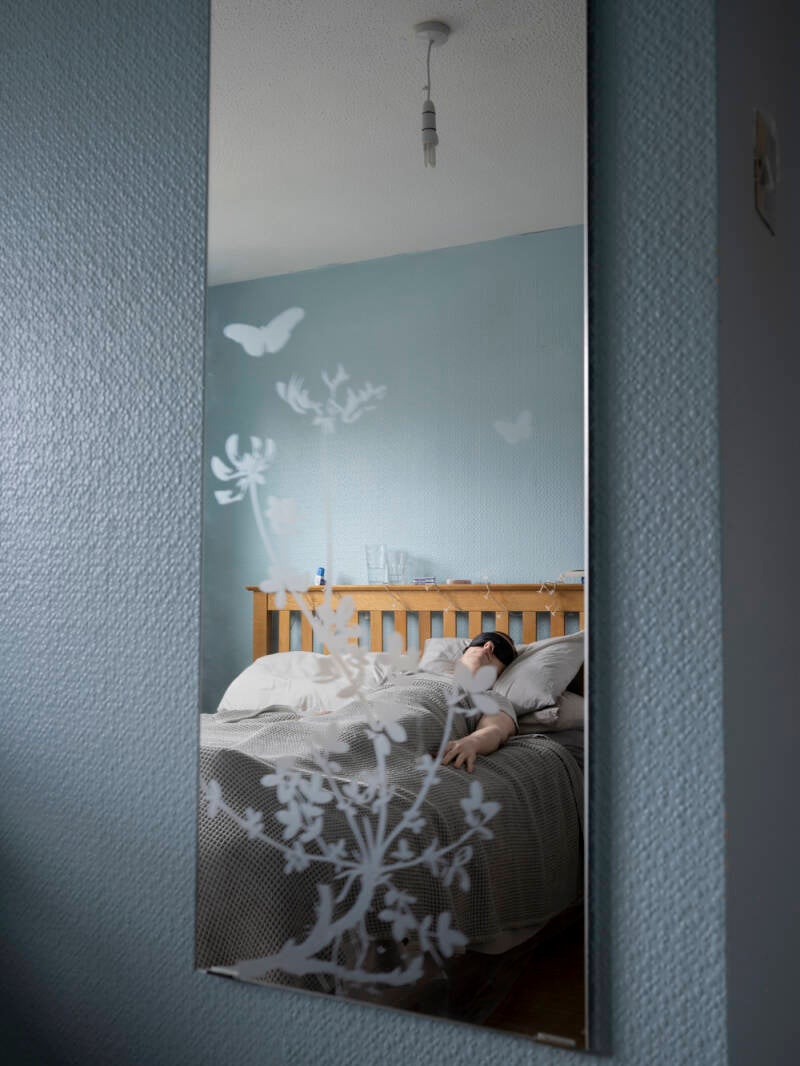
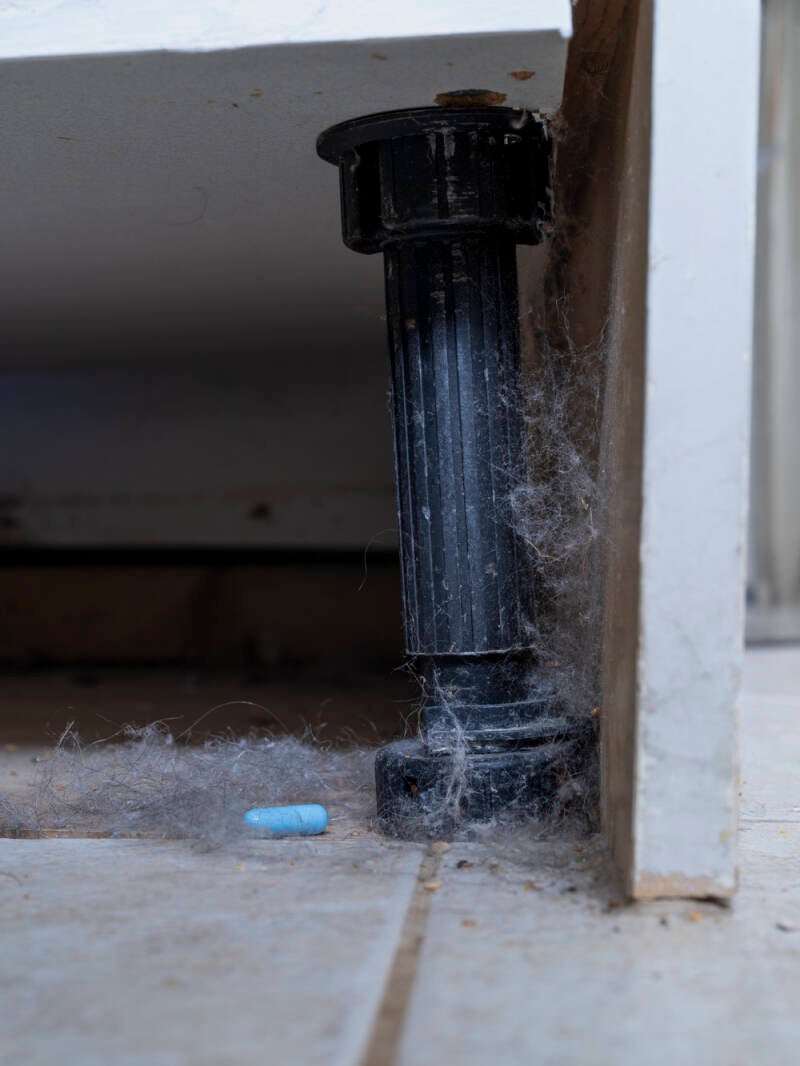

Meanwhile, the clock ticks on. The years slide by and globally c.400 million people are unable to embrace their once rich lives. This has a vast societal and economic burden, also considering the burden on family and friends who provide support in the absence of much from public health.
This creates a two tier situation with some able to afford expensive private tests and therapies - as I was before I lost my business. While I'm lucky to have found a drug and supplement regime which helps a little, my life is now in limbo. I've had to radically redefine my life and expectations.
Photography is a welcome solace. Working within limited energy windows, I'm making my first long form project called 'This invisible illness' which I hope may be used to help raise awareness, understanding and funding.
If you know someone with a long term chronic illness, please know they would love you to remain in touch and to trust them when they describe their challenges.
We all desperately want to live part or fully-recovered lives and we desperately hope the people who shape policy and budgets can now put in place the funding, policies and resources we so urgently need.
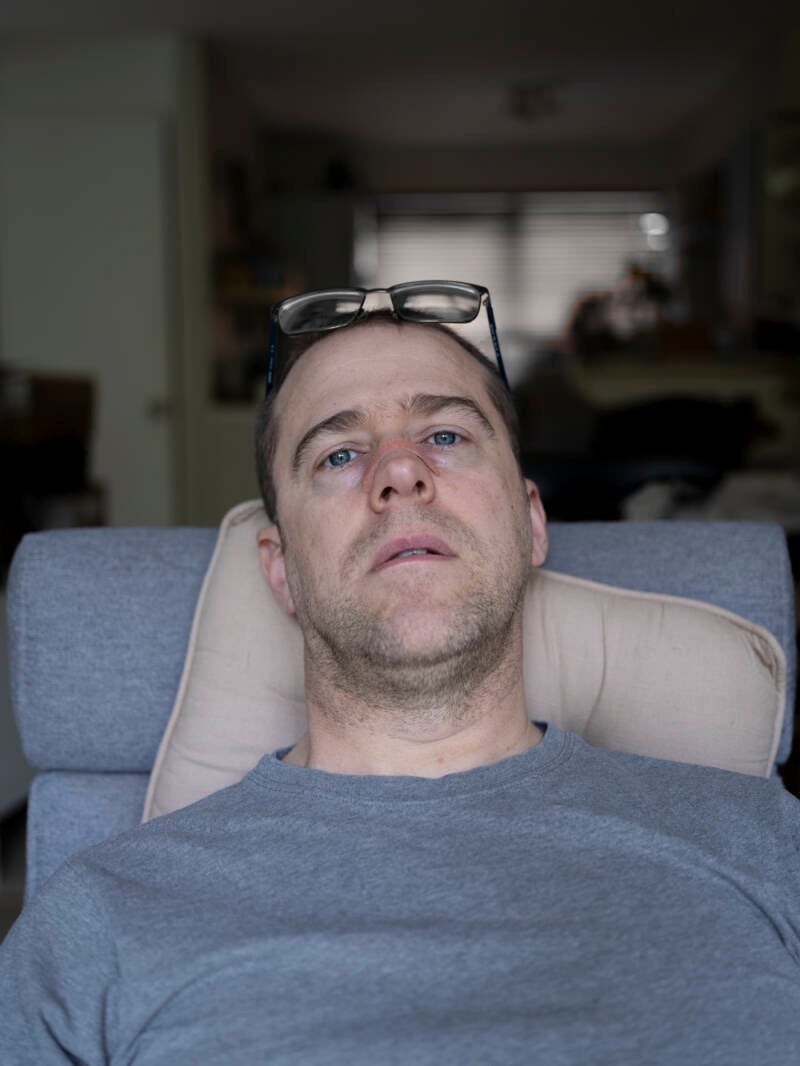
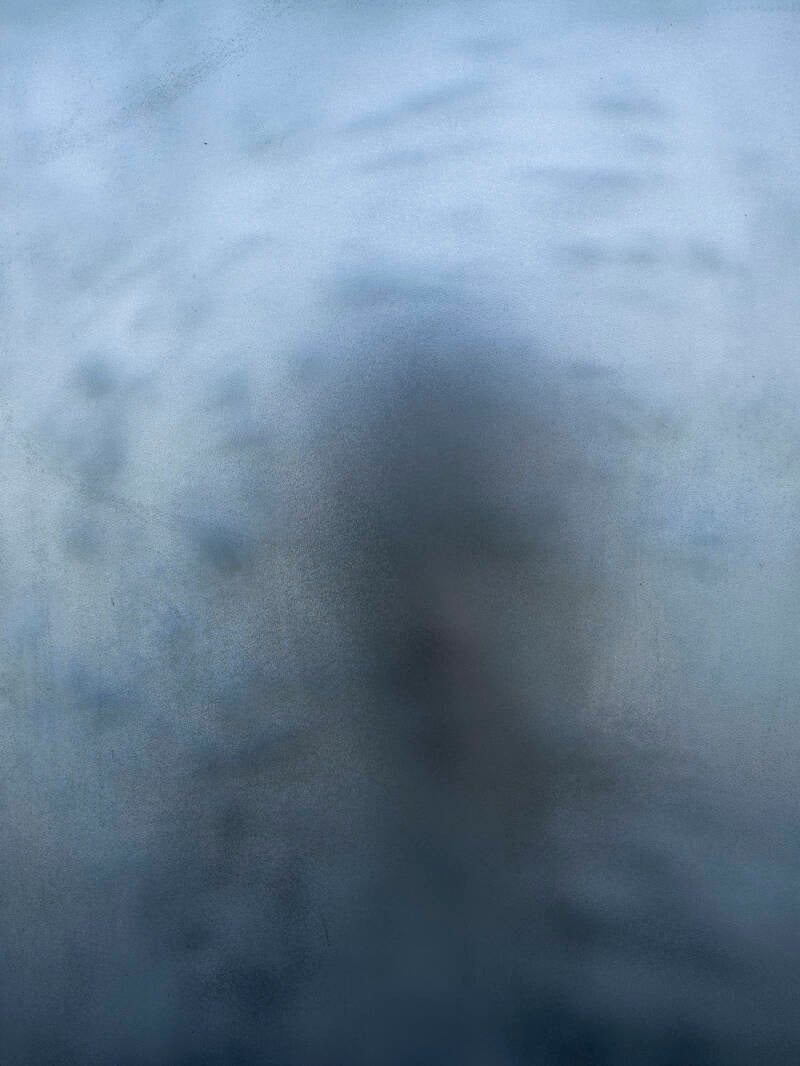
Thanks for visiting this article and photo essay. Please "like" and "share" to support this platform.
You can follow Andrew's story here https://bsky.app/profile/andrewgiffordphoto.bsky.social
To read more about this theme please click this link.